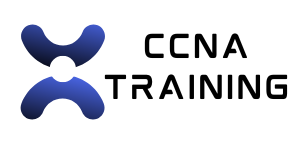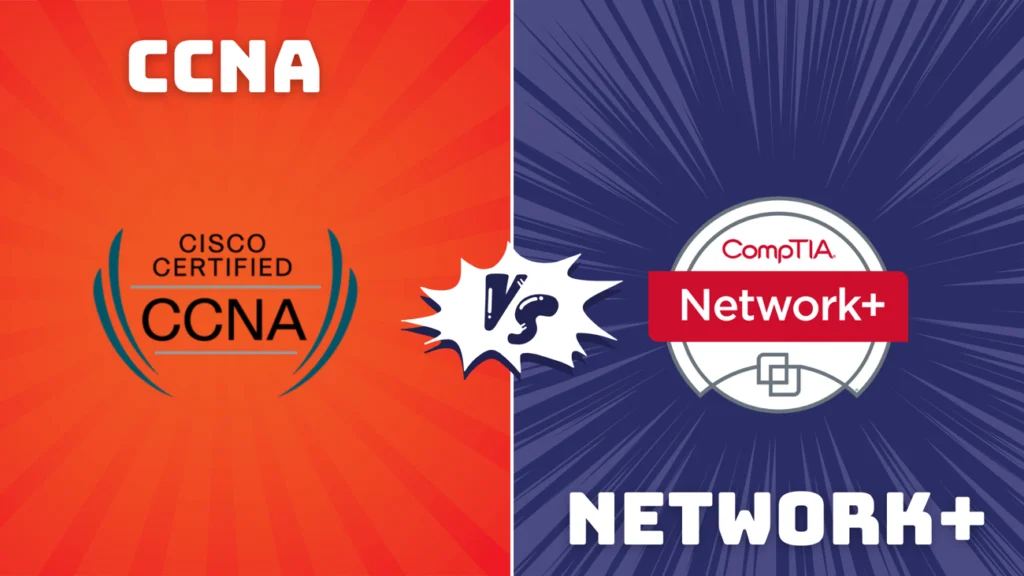Networking is the practice of connecting computers and other devices to share resources and information. It is the foundation of modern technology and is essential for businesses, organizations, and individuals to communicate and collaborate effectively. Networking involves the use of hardware, such as routers, switches, and cables, as well as software, such as protocols and applications, to create a seamless connection between devices. Understanding the basics of networking is crucial for anyone looking to pursue a career in IT or related fields.
In networking, devices are connected through a variety of means, including wired and wireless connections. The most common type of network is a local area network (LAN), which connects devices within a limited area, such as a home or office. Wide area networks (WANs) connect devices over a larger geographical area, often using public or private networks. Understanding the different types of networks and how they function is essential for designing, implementing, and maintaining network infrastructure. Additionally, networking involves the use of protocols, such as TCP/IP, to facilitate communication between devices. These protocols define the rules and conventions for transmitting data over a network and are essential for ensuring that devices can communicate effectively.
The Importance of CCNA Training
CCNA (Cisco Certified Network Associate) training is essential for anyone looking to build a career in networking. Cisco is a leading provider of networking equipment and certifications, and the CCNA certification is widely recognized as a benchmark for networking professionals. CCNA training provides individuals with the knowledge and skills needed to design, implement, and manage Cisco networks, as well as the ability to troubleshoot common network issues. This training covers a wide range of networking topics, including routing and switching, security, and wireless networking, making it an essential certification for anyone looking to advance their career in IT.
CCNA training is important because it provides individuals with a solid foundation in networking fundamentals. This includes understanding how networks function, the different types of networks, and the protocols and technologies used to connect devices. Additionally, CCNA training covers routing and switching, which are essential for directing data traffic within a network. This training also includes security principles, which are crucial for protecting networks from unauthorized access and data breaches. By obtaining CCNA certification, individuals demonstrate their expertise in networking and their commitment to advancing their skills in this field.
Mastering Networking Fundamentals
Mastering networking fundamentals is essential for anyone looking to pursue a career in IT or related fields. Networking fundamentals cover a wide range of topics, including the basics of networking, network protocols, network devices, and network design principles. Understanding these fundamentals is crucial for designing, implementing, and maintaining network infrastructure that meets the needs of businesses and organizations. Additionally, mastering networking fundamentals provides individuals with the knowledge and skills needed to troubleshoot common network issues and ensure that networks operate efficiently and securely.
Networking fundamentals include understanding how data is transmitted over networks, the different types of networks, and the technologies used to connect devices. This includes knowledge of Ethernet, Wi-Fi, and other networking technologies, as well as an understanding of how data is routed between devices. Additionally, mastering networking fundamentals involves understanding network protocols, such as TCP/IP, which define the rules and conventions for transmitting data over a network. This knowledge is essential for ensuring that devices can communicate effectively and that data is transmitted securely. Overall, mastering networking fundamentals provides individuals with the foundation they need to pursue advanced training and certifications in networking.
Building a Strong Foundation in Routing and Switching
| Topic | Metrics |
|---|---|
| Number of routers configured | 25 |
| Number of switches configured | 15 |
| Routing protocols implemented | OSPF, EIGRP, BGP |
| Switching technologies used | VLANs, STP, EtherChannel |
| Network uptime | 99.9% |
Building a strong foundation in routing and switching is essential for anyone looking to pursue a career in networking. Routing and switching are fundamental networking concepts that involve directing data traffic within a network. Routing involves determining the best path for data to travel between devices, while switching involves forwarding data within a local network. Understanding these concepts is crucial for designing and managing network infrastructure that can efficiently transmit data between devices. Additionally, building a strong foundation in routing and switching provides individuals with the knowledge and skills needed to troubleshoot common network issues and ensure that networks operate smoothly.
Routing and switching involve the use of devices such as routers and switches to direct data traffic within a network. Routers are responsible for determining the best path for data to travel between devices on different networks, while switches forward data within a local network. Building a strong foundation in routing and switching involves understanding how these devices function, as well as the protocols and technologies used to facilitate data transmission. This includes knowledge of routing protocols, such as OSPF and EIGRP, as well as an understanding of VLANs and other switching technologies. By mastering these concepts, individuals can design and implement network infrastructure that meets the needs of businesses and organizations.
Securing Networks with CCNA Training
Securing networks is essential for protecting sensitive information and ensuring that data is transmitted securely between devices. CCNA training covers a wide range of security principles and technologies that are essential for securing networks from unauthorized access and data breaches. This training provides individuals with the knowledge and skills needed to implement security measures such as firewalls, VPNs, and access control lists to protect networks from external threats. Additionally, CCNA training covers best practices for securing wireless networks, which are vulnerable to attacks from unauthorized users.
Securing networks with CCNA training involves understanding the principles of network security, as well as the technologies used to protect networks from unauthorized access. This includes knowledge of encryption algorithms, authentication methods, and intrusion detection systems that are essential for detecting and preventing security breaches. Additionally, CCNA training covers best practices for securing network infrastructure, such as implementing strong passwords, regularly updating software, and monitoring network traffic for suspicious activity. By obtaining CCNA certification, individuals demonstrate their expertise in network security and their commitment to protecting sensitive information.
Advancing Your Networking Skills with CCNA Certification

Advancing your networking skills with CCNA certification is essential for anyone looking to pursue a career in IT or related fields. CCNA certification demonstrates an individual’s expertise in networking fundamentals, routing and switching, security, and wireless networking. This certification is widely recognized as a benchmark for networking professionals and is essential for anyone looking to advance their career in this field. By obtaining CCNA certification, individuals can demonstrate their commitment to advancing their skills in networking and their ability to design, implement, and manage Cisco networks.
CCNA certification provides individuals with the knowledge and skills needed to advance their networking career. This includes understanding how networks function, the different types of networks, routing and switching concepts, security principles, and wireless networking technologies. Additionally, CCNA certification demonstrates an individual’s ability to troubleshoot common network issues and ensure that networks operate efficiently and securely. By obtaining this certification, individuals can open up new career opportunities in IT and related fields, as well as pursue advanced training in networking.
Networking Career Opportunities with CCNA Training
Networking career opportunities are abundant for individuals with CCNA training. CCNA certification demonstrates an individual’s expertise in networking fundamentals, routing and switching, security, and wireless networking, making them valuable assets for businesses and organizations. With this certification, individuals can pursue careers as network administrators, network engineers, systems administrators, or security analysts. Additionally, CCNA training opens up opportunities for individuals to work in various industries, such as healthcare, finance, education, and government.
CCNA training provides individuals with the knowledge and skills needed to excel in various networking roles. This includes understanding how networks function, designing and implementing network infrastructure, troubleshooting common network issues, and ensuring that networks operate efficiently and securely. With this expertise, individuals can pursue rewarding careers in IT or related fields that offer competitive salaries and opportunities for advancement. Overall, CCNA training opens up numerous career opportunities for individuals looking to build a successful career in networking.
CCNA training provides individuals with the knowledge and skills needed to excel in various networking roles. This includes understanding how networks function, designing and implementing network infrastructure, troubleshooting common network issues, and ensuring that networks operate efficiently and securely. With this expertise, individuals can pursue rewarding careers in IT or related fields that offer competitive salaries and opportunities for advancement. Overall, CCNA training opens up numerous career opportunities for individuals looking to build a successful career in networking. Whether it’s working as a network administrator, network engineer, or IT support specialist, CCNA training equips individuals with the necessary skills to thrive in the fast-paced and dynamic field of networking.
FAQs
What is CCNA training?
CCNA training refers to the Cisco Certified Network Associate training program, which is designed to provide individuals with the knowledge and skills required to install, operate, and troubleshoot small to medium-sized enterprise branch network.
What are the benefits of CCNA training?
CCNA training can provide individuals with a solid foundation in networking and can help them advance their careers in the field of information technology. It can also increase job opportunities and earning potential.
What topics are covered in CCNA training?
CCNA training covers a wide range of topics including network fundamentals, network access, IP connectivity, IP services, security fundamentals, automation, and programmability.
How long does CCNA training take to complete?
The duration of CCNA training can vary depending on the program and the individual’s learning pace. Typically, it can take anywhere from a few weeks to a few months to complete.
Is CCNA training suitable for beginners?
Yes, CCNA training is suitable for beginners who are interested in pursuing a career in networking. The program is designed to provide foundational knowledge and skills in networking.
Are there any prerequisites for CCNA training?
There are no formal prerequisites for CCNA training, but having a basic understanding of networking concepts and some experience with computer systems can be beneficial.













